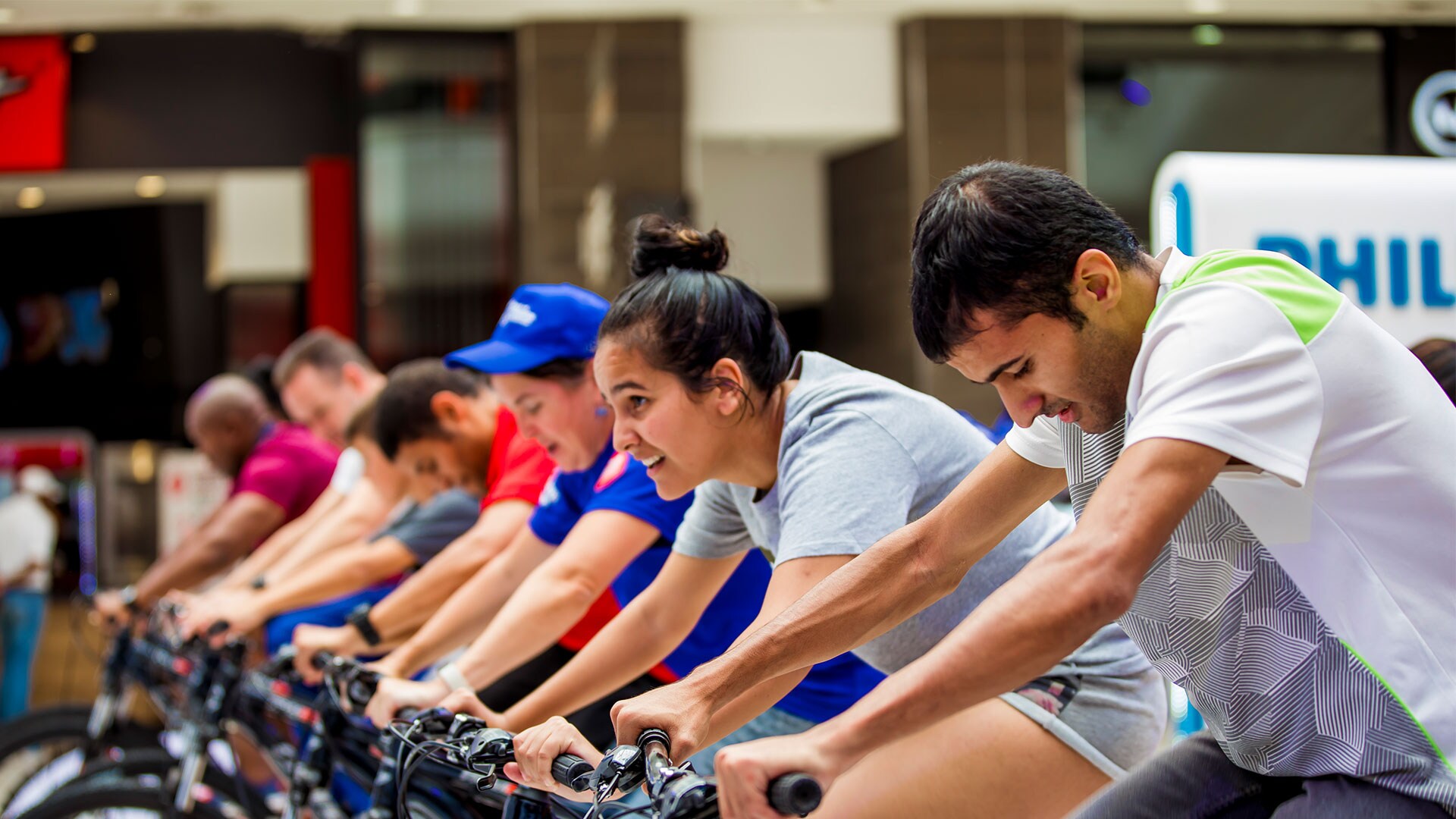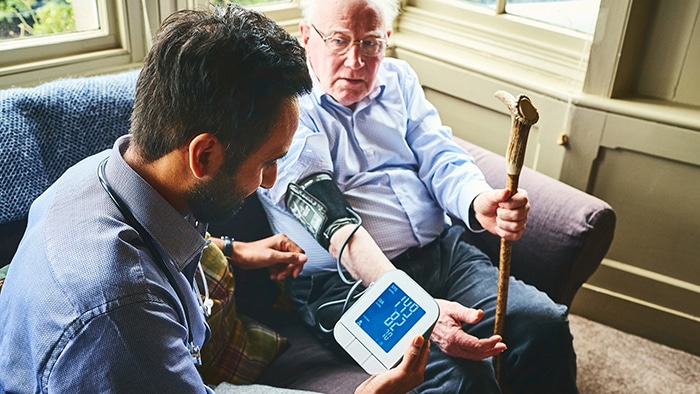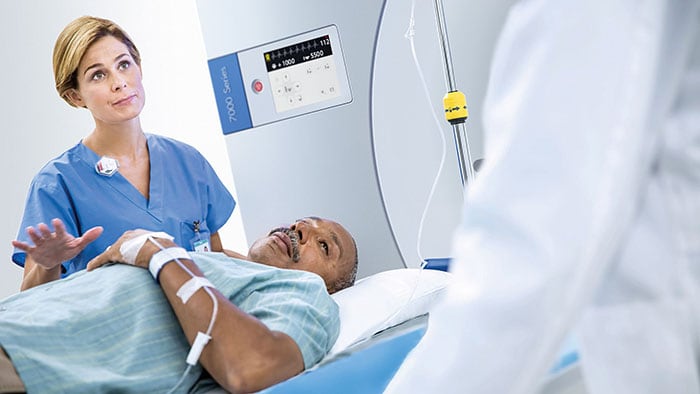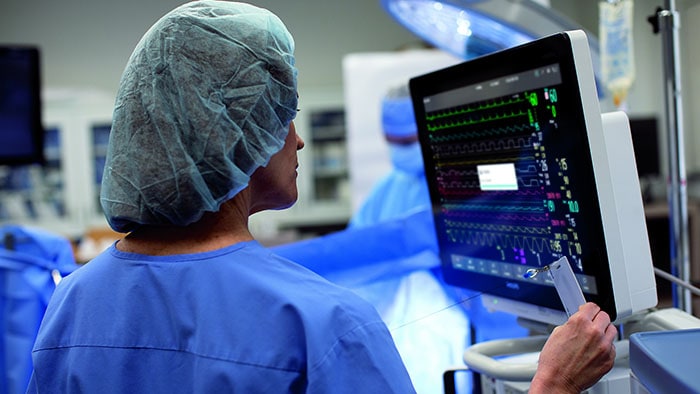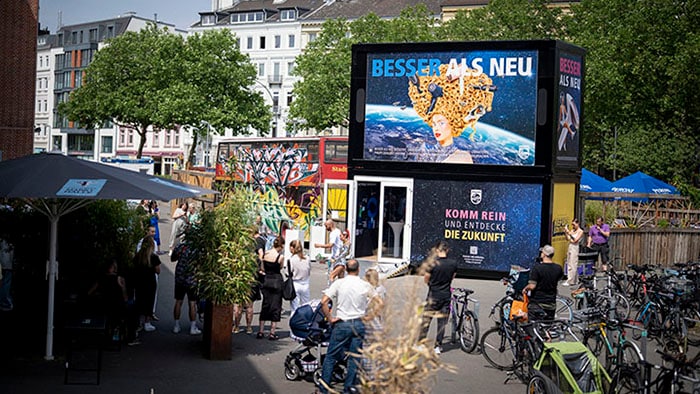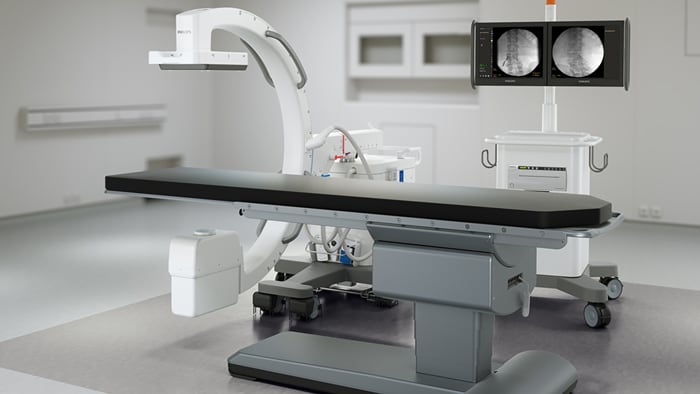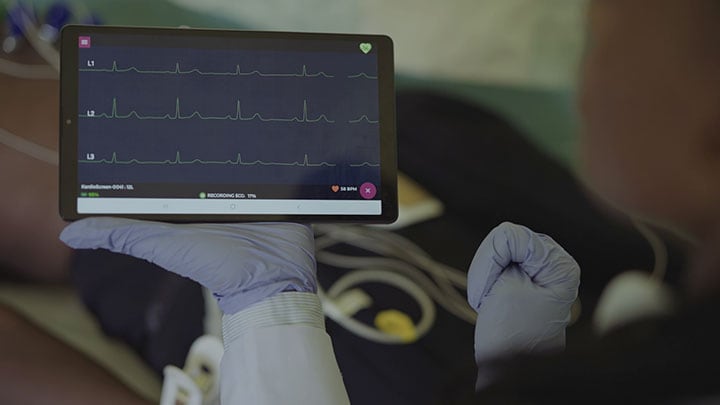Mar 14, 2019
Staggering heart disease figures prompt South Africans to pedal it out to bring South Africa’s heart beat back to rhythm
The Philips Foundation, Philips South Africa Commercial (Pty) Limited and the Heart and Stroke Foundation South Africa (HSFSA), are collaborating to launch Back to Rhythm – an education campaign aimed at creating awareness around cardiac health
Johannesburg, South Africa – In South Africa five people suffer a heart attack every hour1, contributing to 17.3 million annual deaths related to heart disease globally – a number that is expected to grow by more than 36% by 2030[1]. To create public awareness and conversation around cardiac health and to ultimately drive down these staggering statistics, the Philips Foundation in collaboration with Philips South Africa Commercial (Pty) Limited and the Heart and Stroke Foundation South Africa (HSF) has launched Back to Rhythm - an education campaign leading up to World Health Day. “Few people know that in the event of a Sudden Cardiac Arrest, a person’s best chance of survival is receiving a defibrillator shock within five minutes of collapse,” says Philips Africa CEO, Jasper Westerink. “Because the chance of survival is reduced by 10 percent every minute, with few attempts of successful resuscitation after 10 minutes, it’s vital to have automated external defibrillators (AEDs) on hand at the point where care is needed.” To equip the public with lifesaving capabilities, Philips and the HSFSA aim to increase access to AEDs – an essential emergency response device in the case of SCA – through the Back to Rhythm campaign. But there is a condition; South Africans need take up the mantle of getting active in different biking challenges to secure up to 25 Philips HeartStart AEDs to be placed in public spaces.
This year, the World Health Day lens focuses on ensuring that everyone can obtain the care they need, when they need it, which is ultimately what the Back to Rhythm campaign sets out to address, as it relates to heart health and preventable deaths from Sudden Cardiac Arrest (SCA).
We hope that the hugely enthusiastic response locally is just the start of a heart healthy South Africa, and bigger conversations to realise widespread access wherever care is needed – be it at malls, beaches or other areas where South Africans work and play.
Jasper Westerink
CEO, Philips Africa
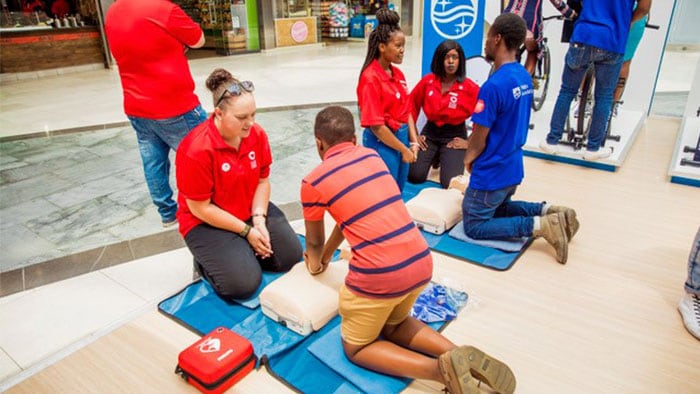
Heart of the Nation Challenge
One of the key objectives of the Back to Rhythm campaign, is to rally South Africans to participate in the stationary bike challenges taking place during March and April 2019, in Johannesburg and Cape Town. Across these 12 (twelve) activations, participants need to bike for 10-minutes at a time to complete a total of 4,400 kilometers – the distance required to create a digital heartbeat from Cape Town to Johannesburg and back. For a minimum of 367 km cycled at every location, Philips will donate one HeartStart AED to HSFSA, up to a maximum of 25 for the total distance of 4,400 km. “It is important that we reduce the strain highly preventable conditions such as heart disease places on our nation’s health,” says Yogan Pillay, Deputy Director-General, National Department of Health. “By participating here today, we hope to trigger a trickle-down effect that will see our staff and their families take up the challenge to adapt healthier lifestyles, and in turn inspire communities throughout South Africa to bring South Africa’s heartbeat back to rhythm, together.”
“80% of premature deaths before the age of 60 can be prevented with a healthy lifestyle,” says Professor Pamela Naidoo, CEO of the HSFSA. “This is why we want South Africans to be mindful of their lifestyle choices and aware of the impact those choices have on heart health. By reinforcing good habits, like getting active and eating balanced meals, we aim to firstly prevent future incidence of heart disease, and secondly educate South Africans on how to save a life in the unfortunate event that preventative measures were not effective often due to over-riding genetic factors.”
To empower the public, the HSFSA is on site at each cycling challenge providing CPR (Cardio Pulmonary Resuscitation), BLS (Basic Life Support) and AED resuscitation training to all participants to teach them the skills needed to save a life – especially in the case of SCA.
It is important that we reduce the strain highly preventable conditions such as heart disease places on our nation’s health,” says Yogan Pillay, Deputy Director-General, National Department of Health. By participating here today, we hope to trigger a trickle-down effect that will see our staff and their families take up the challenge to adapt healthier lifestyles, and in turn inspire communities throughout South Africa to bring South Africa’s heartbeat back to rhythm, together.
Yogan Pillay
Deputy Director-General, National Department of Health
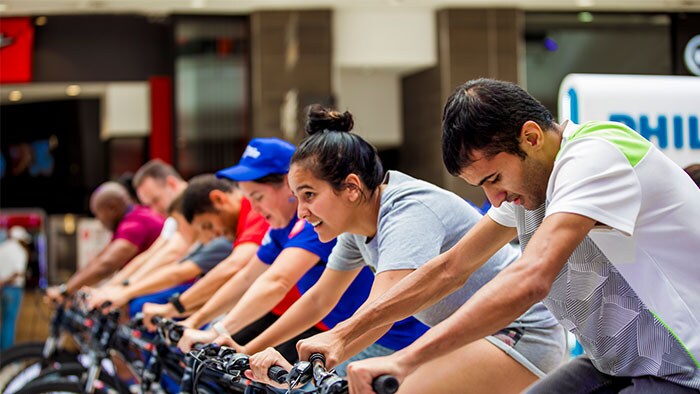
Ride to Johannesburg
A semi-professional relay team along with some Philips staff will cycle across South Africa from Cape Town to Johannesburg to visually bring South Africa’s heartbeat back to rhythm – creating a digital heartbeat over a 2,200-kilometer distance - to raise awareness and shine a spotlight on heart health. In conjunction with this, Philips is also attempting to create a Guinness World Record for the world’s largest GPS drawing (digital ECG heartbeat) on bicycle by an individual. The team will kick-off the “Ride to Johannesburg” challenge in Cape Town on Sunday, 31 March, 2019 with the aim of arriving in Johannesburg on Friday, 05 April 2019 – with the Guinness World Record in tow - as the climax of the Heart of the Nation Challenge and the Back to Rhythm finale. “Funded by the Philips Foundation, we have spearheaded the Back to Rhythm campaign in Kenya and Egypt over the past two years and have already placed 43 (forty-three) AEDs in public spaces through this initiative,” says Westerink. “We hope that the hugely enthusiastic response locally is just the start of a heart healthy South Africa, and bigger conversations to realise widespread access wherever care is needed – be it at malls, beaches or other areas where South Africans work and play.” Follow the campaign on Facebook and Twitter with #BacktoRhythm, or visit the microsite for more information.
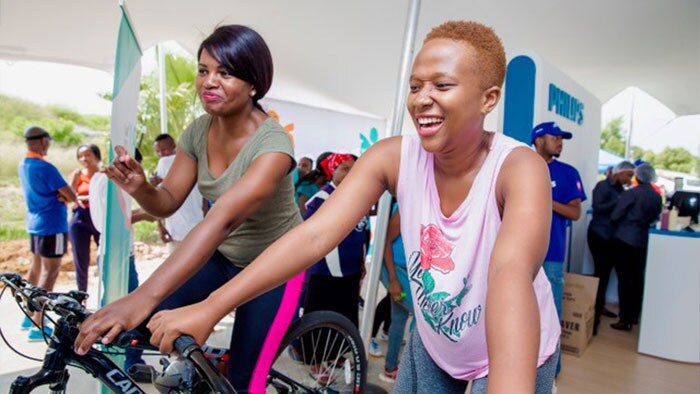
About the Philips Foundation
The Philips Foundation is a registered charity that was established in July 2014 as the central platform for Philips’ CSR activities. Reflecting our commitment to United Nations Sustainable Development Goals 3 (Ensure healthy lives and promote well-being for all at all ages) and 17 (Revitalize the global partnership for sustainable development), the mission of the Foundation is to reduce healthcare inequality by providing access to quality healthcare for disadvantaged communities. We do this by deploying Philips’ expertise, innovative products and solutions, by collaborating with key partners around the world and by providing financial support for collaborative activities.
About the Heart and Stroke Foundation SA
The Heart and Stroke Foundation South Africa (HSFSA) plays a leading role in the fight against preventable heart disease and stroke, with the aim of seeing fewer people in South Africa suffer premature deaths and disabilities. The HSFSA, established in 1980 is a non-governmental, non-profit organization which relies on external funding to sustain the work it carries out. The HSFSA aims to reduce the cardiovascular disease (CVD) burden in South Africa and ultimately on the health care system of South Africa. Our mission is to empower people in South Africa to adopt healthy lifestyles, make healthy choices easier, seek appropriate care and encourage prevention. For more information visit www.heartfoundation.co.za. You can also find us on www.facebook.com/HeartStrokeSA and www.twitter.com/SAHeartStroke.
About Royal Philips
Royal Philips (NYSE: PHG, AEX: PHIA) is a leading health technology company focused on improving people's health and enabling better outcomes across the health continuum from healthy living and prevention, to diagnosis, treatment and home care. Philips leverages advanced technology and deep clinical and consumer insights to deliver integrated solutions. Headquartered in the Netherlands, the company is a leader in diagnostic imaging, image-guided therapy, patient monitoring and health informatics, as well as in consumer health and home care. Philips generated 2018 sales of EUR 18.1 billion and employs approximately 77,000 employees with sales and services in more than 100 countries. News about Philips can be found at www.philips.com/newscenter.

